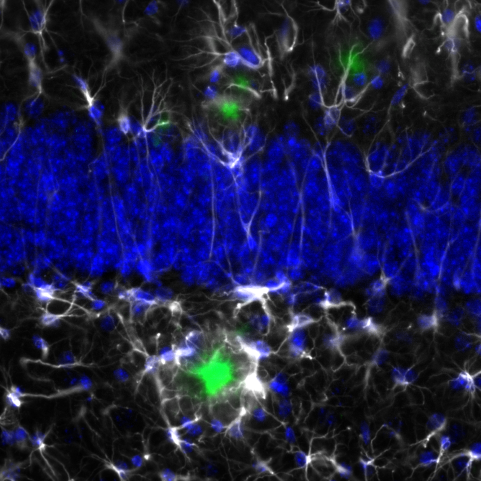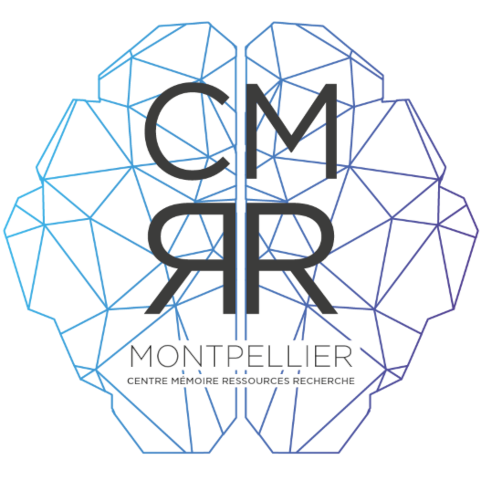Alzheimer disease
Alzheimer’s disease is a neurodegenerative pathology that progressively affects cognitive functions, particularly memory. It is the most common form of dementia, affecting around 900,000 people in France.

/ Symptoms and evolution
The first signs of the disease are often short-term memory problems. Over time, other symptoms appear:
• Language and communication difficulties
• Disorientation in time and space
• Impaired judgement and reasoning
• Changes in mood and behaviour
The disease generally progresses over several years, leading to a gradual loss of independence.

/ Neuropathology
Alzheimer’s disease is characterised by two types of brain damage:
• The accumulation of amyloid plaques between neurons, composed of beta-amyloid protein.
• The formation of clusters of abnormal tau protein (neurofibrillary degeneration) inside neurons.
These lesions gradually lead to the death of neurons, generally beginning in the hippocampus, a brain region crucial for memory. The disease then spreads to other areas of the brain, causing various cognitive and behavioural disorders.


/ Risk factors
Although the exact causes of Alzheimer’s disease are still poorly understood, several risk factors have been identified:
• Age (main risk factor)
• Family history
• Certain susceptibility genes (such as APOE4)
• Cardiovascular disease
• Type 2 diabetes
• Obesity
• Smoking
• Lack of physical and cognitive activity

/ Diagnosis and treatment
Diagnosis is based on a series of clinical, neuropsychological and brain imaging tests. Although there is as yet no cure, several approaches are aimed at slowing the progression of the disease and improving patients’ quality of life:
• Symptomatic medication (cholinesterase inhibitors, memantine)
• Cognitive stimulation
• Appropriate physical activity
• Psychological and social support


/ Research and hope
Research into Alzheimer’s disease is very active, exploring new therapeutic avenues such as immunotherapy targeting the beta-amyloid protein and approaches aimed at reducing cerebral inflammation. Find out more…
Support associations
A number of associations provide support for patients and their families, such as France Alzheimer which offers training, discussion groups and adapted activities while actively funding research. The Fondation Vaincre Alzheimer, the Fondation pour la Recherche Médicale, the Fondation Alzheimer and the Fondation Recherche Alzheimer also support scientific research into the disease.

/ Alzheimer’s research at the IGF
At IGF, researchers are carrying out innovative research to understand the mechanisms involved in this complex pathology, identify biomarkers and risk factors and propose new therapeutic avenues.
Find out more about the projects of:



